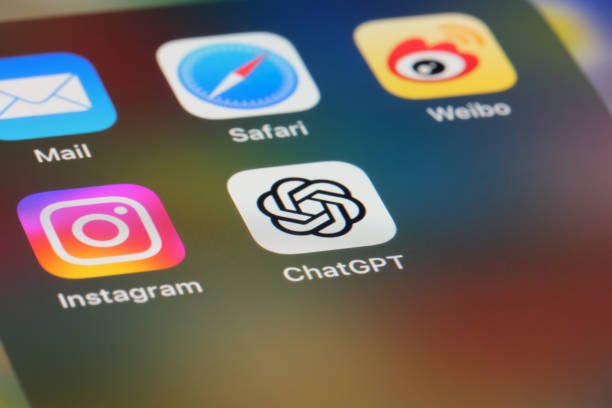In an age where artificial intelligence (AI) is reshaping creative endeavors, many aspiring authors ponder, “Can I use ChatGPT to write a book and sell it?” This question opens the door to exploring the capabilities and ethical considerations of utilizing AI like ChatGPT in the literary world. From drafting manuscripts to navigating the complexities of the publishing industry. Let’s delve into how ChatGPT can serve as a tool in an author’s arsenal.

The Potential of ChatGPT in Book Writing – ChatGPT to Write
ChatGPT, with its advanced language processing capabilities. Offers a unique avenue for writers to brainstorm, outline, and even draft sections of their books. This section will explore how the technology can augment the creative process.
Understanding Copyrights and AI
Understanding the copyright laws that apply to AI-generated content is crucial for any author looking to sell their book. This part will outline the legal framework, emphasizing the importance of originality and the author’s intellectual contribution.

The Process of Writing a Book with ChatGPT – ChatGPT to Write
From conceptualization to drafting, ChatGPT can play a vital role. Here, we’ll provide a practical guide on integrating ChatGPT into the writing process. Ensuring the focus remains on enhancing rather than replacing the human touch.
1. Conceptualizing Your Book Idea
Every book begins with an idea. ChatGPT can:
- Brainstorm themes and genres: Provide prompts like, “Suggest ideas for a mystery novel set in the 1920s.”
- Develop a premise: Expand on a vague concept. For instance, “What’s a unique twist on a post-apocalyptic survival story?”
- Outline target audiences: Identify readers your idea might appeal to and how to tailor content for them.
Tip: Be clear about your goals and provide context for better suggestions.
2. Building a Framework
With your concept in place, creating a structure is crucial. ChatGPT can:
- Draft outlines: Break your idea into chapters or sections. Example: “Create a 10-chapter outline for a self-help book on mindfulness.”
- Refine pacing: Determine how events or themes unfold.
- Suggest character arcs: For fiction, ask for dynamic character development suggestions.
Example Prompt: “How might a protagonist grow emotionally in a story about overcoming failure?”
3. Drafting Content
ChatGPT excels in generating text, making it invaluable for early drafts:
- Write scenes or sections: Provide specific instructions, like, “Write a suspenseful opening scene for a thriller.”
- Generate dialogue: Use prompts such as, “Write a conversation between a detective and a suspect.”
- Fill gaps in narrative: Get help expanding underdeveloped areas or transitioning between ideas.
Tip: Use drafts as starting points. Revise them to infuse your personal style.
4. Refining and Editing – ChatGPT to Write
No draft is perfect, but ChatGPT can elevate your work:
- Edit for clarity and flow: Ask, “Can you rewrite this paragraph to make it more engaging?”
- Spot inconsistencies: Query, “Does the timeline in this chapter make sense?”
- Enhance tone and style: Provide feedback like, “Rewrite this to sound more formal.”
Example Prompt: “Polish this dialogue to sound more authentic for a teenager in 2024.”
5. Overcoming Writer’s Block
Stuck on a scene or concept? ChatGPT can help you break through:
- Idea generation: “What’s a creative way for a hero to escape from a locked room?”
- Alternative approaches: “Suggest another way to end this chapter.”
- Motivational prompts: Get encouraging advice or time-saving techniques.
6. Final Touches and Formatting
As you prepare for publication:
- Proofread: Ask ChatGPT to spot typos, grammar issues, or awkward phrasing.
- Format content: Get advice on structuring sections or using tools for layout.
- Create additional materials: Generate book descriptions, author bios, or promotional content.
Keeping the Human Touch – ChatGPT to Write
While ChatGPT is a powerful collaborator, the magic of storytelling lies in your creativity. Use it to:
- Amplify your strengths: Save time on repetitive tasks, allowing more focus on creative vision.
- Retain authenticity: Ensure the final work reflects your unique perspective.
- Guide revisions: Review AI-generated content critically to align it with your voice.
Marketing and Selling Your AI-Assisted Book
Once the manuscript is complete, the next steps are marketing and selling. Explores strategies for promoting and selling your AI-assisted book, leveraging both traditional and digital platforms to reach your target audience.

Ethical Considerations and Authorial Integrity
As we harness the power of AI like ChatGPT in writing, it’s imperative to discuss the ethical implications and maintain a balance that respects authorial integrity. This concluding section reflects on responsible AI use and its impact on the literary world.
Conclusion: ChatGPT to Write
In the exploration of using ChatGPT for writing and selling books, we’ve ventured into a promising frontier where AI’s capabilities blend with creative human endeavor. The question, “Can I use ChatGPT to write a book and sell it?” opens up a realm of possibilities for authors. The potential of utilizing ChatGPT from concept to completion illustrates a transformative shift in creative writing, underscored by the necessity to navigate legal, ethical, and authenticity concerns thoughtfully.
This guide confirms that with careful consideration and strategic use, ChatGPT can indeed be a valuable ally in the author’s journey, enriching the creative process and expanding the potential for reaching audiences in the evolving landscape of publishing. Embracing this synergy of AI and human creativity might just be the key to unlocking new dimensions in storytelling and literature.









[…] marketing remains a powerful tool for lead generation. Furthermore, ChatGPT can be used to automate email responses and follow-ups. For example, when a potential lead fills […]